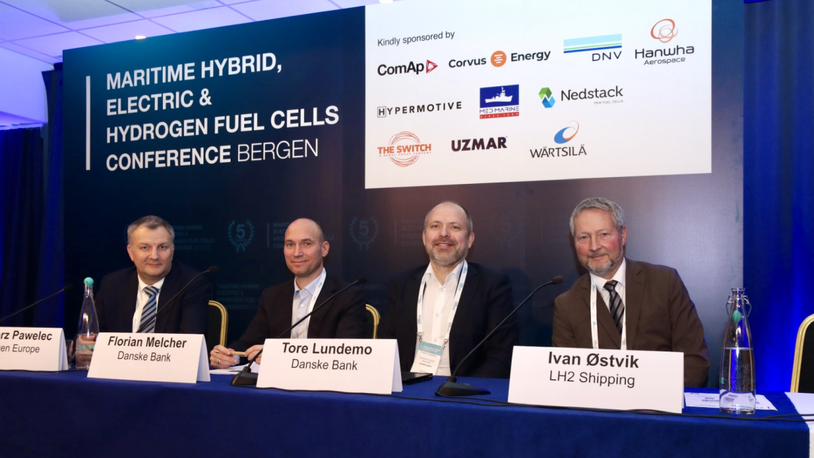Ivan Østvik, Managing Director of LH2 Shipping, introduced the business case for hydrogen as an alternative fuel for new ships, using the world’s first liquid hydrogen-fueled ship, Hydra, which began operations in Norway in 2023, as an example.
He agreed that the business case is important when securing funding. “We needed energy-to-wake focus and a green supply of hydrogen,” he said. Ship design and fuel selection are determined by availability, technology, time and location of refueling, distance to sail, and cost breakdown.
Technologies evaluated include polymer electrolyte fuel cells, solid oxide fuel cells, dual-fuel engines and generator sets. Ostvik said fuel evaluation includes storage requirements, energy density, availability, bunkering time, toxicity and safety considerations. “PEM fuel cells are an excellent technology for some marine applications.”
Grzegorz Pawelec, Director of Regulatory and Market Intelligence at Hydrogen Europe, reviewed the latest regulations and funding from the European Union (EU) in his presentation. He outlined sources of funding for clean hydrogen partnerships and demonstration projects, including bank auctions, innovation funds and FuelEU Maritime.
Pawelek said the latest series of EU funds will start in December 2024 and end in February 2025 for fuel production, bunkering and supply for maritime applications. Pilot projects are already underway, and EU funding is underway for new cruise ships and cargo ships, as well as retrofits for power, liquid hydrogen and bio-LNG.
Riviera’s Marine Hybrid, Electric and Hydrogen Fuel Cell Conference was held in Bergen, Norway from 29-31 October 2024 and considered key trends, regulations, class rules and developments in the zero-emission ecosystem.

